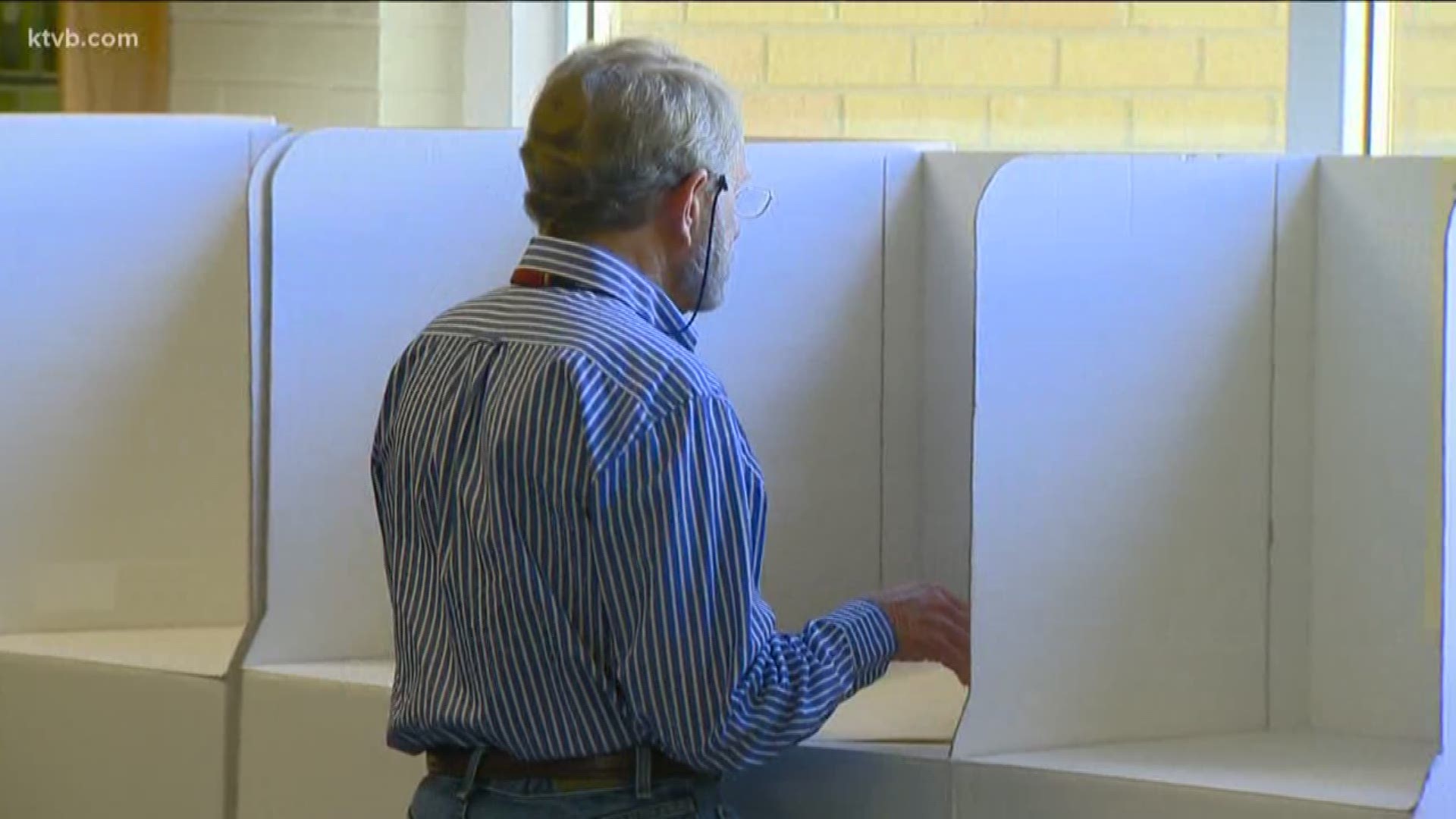BOISE, Idaho — Following a public outcry, a Senate committee on Tuesday approved a measure on ballot initiatives softening requirements of another ballot initiative bill that had already cleared the Senate and House.
Critics say, lawmakers, upset that voters last year chose to expand Medicaid in Idaho, are trying to make it harder for people to participate in the initiative process by increasing the number of signatures required to get a measure on the ballot and shortening the time period in which to collect them.
The ballot initiatives bills have become some of the most contentious legislation this session. They are seen as a reaction by lawmakers to the Medicaid expansion passed by voters in November with 61 percent of the vote following years of inaction by the Legislature. The federal government would pay 90 percent of the cost, but Idaho still has to come up with $20 million and lawmakers have been fighting over how to do that.
The Senate State Affairs Committee voted 6-3 to send the latest initiatives bill to the Senate following heated testimony that caused Republican Sen. Patti Ann Lodge to gavel into silence one person and ask a handful of others to be respectful.
The measure is a follow up to a previous bill. The new bill gives signature collectors nine months to collect signatures from 24 of Idaho's 35 legislative districts. They must also 10 percent of registered voters.
That's meant to replace language in the previous bill that requires 10 percent of registered voters in 32 of 35 districts in six months. Another requirement, also in the replacement bill, is that ballot initiatives must contain a fiscal note and possible funding source for the proposed law.
Current rules require signatures from 6 percent of voters in 18 districts in 18 months.
Republican lawmakers introduced the new bill amid concerns that their first measure made it too difficult to get initiatives on the ballot.
The latest bill "is an effort to listen to what people have said ... and make a few concessions," said Republican Senate Majority Leader Sen. Chuck Winder, a member of the committee who voted for the bill.
Backers of the legislation say it's needed to give rural voters an equal voice due to information technology and social media that will increasingly allow initiative backers to target growing population centers where groups supporting particular issues live. Supporters say that signatures in just four highly populated areas can get an initiative on the ballot.
Idaho is growing fast, with most of that growth in urban areas, which tend to contain more Democrats than other parts of the state. Backers of making ballot initiatives tougher, particularly in the Republican-dominated Legislature, say it's reasonable to make sure more signatures must be collected from rural areas so that initiatives that make the ballot are something voters across the state truly want.
But opponents of both the original and trailer bill say it will make ballot initiatives nearly impossible and could be unconstitutional. Opponents also say the 10 percent of registered voters rather than 10 percent of voters who voted in the last election is too high a requirement.
This "looks like nothing more than a door slammed into the face of people trying to participate," Rialin Flores of Conservation Voters of Idaho told the committee.
A main complaint of the initial legislation is that it gave any four legislative districts veto power over the ballot initiative process, and that just 9 percent of Idaho voters could stymie an initiative.
But Gary Moncrief, a political science professor at Boise State University, said that concern was removed with the softer requirements in the new bill. But Moncrief, who spoke against the new measure, said it was still so difficult that it could end ballot initiatives in Idaho.
Russ Hendricks of the Idaho Farm Bureau Federation testified against the latest measure, saying lawmakers should stick with the tougher original bill.
The trailer bill now goes to the Senate.
The plan among lawmakers in leadership in the House and Senate is to have the Senate also pass the new bill and then have Gov. Brad Little sign both the original and amended version. The language in the amended bill softening ballot initiative requirements would replace the language in the original bill.

